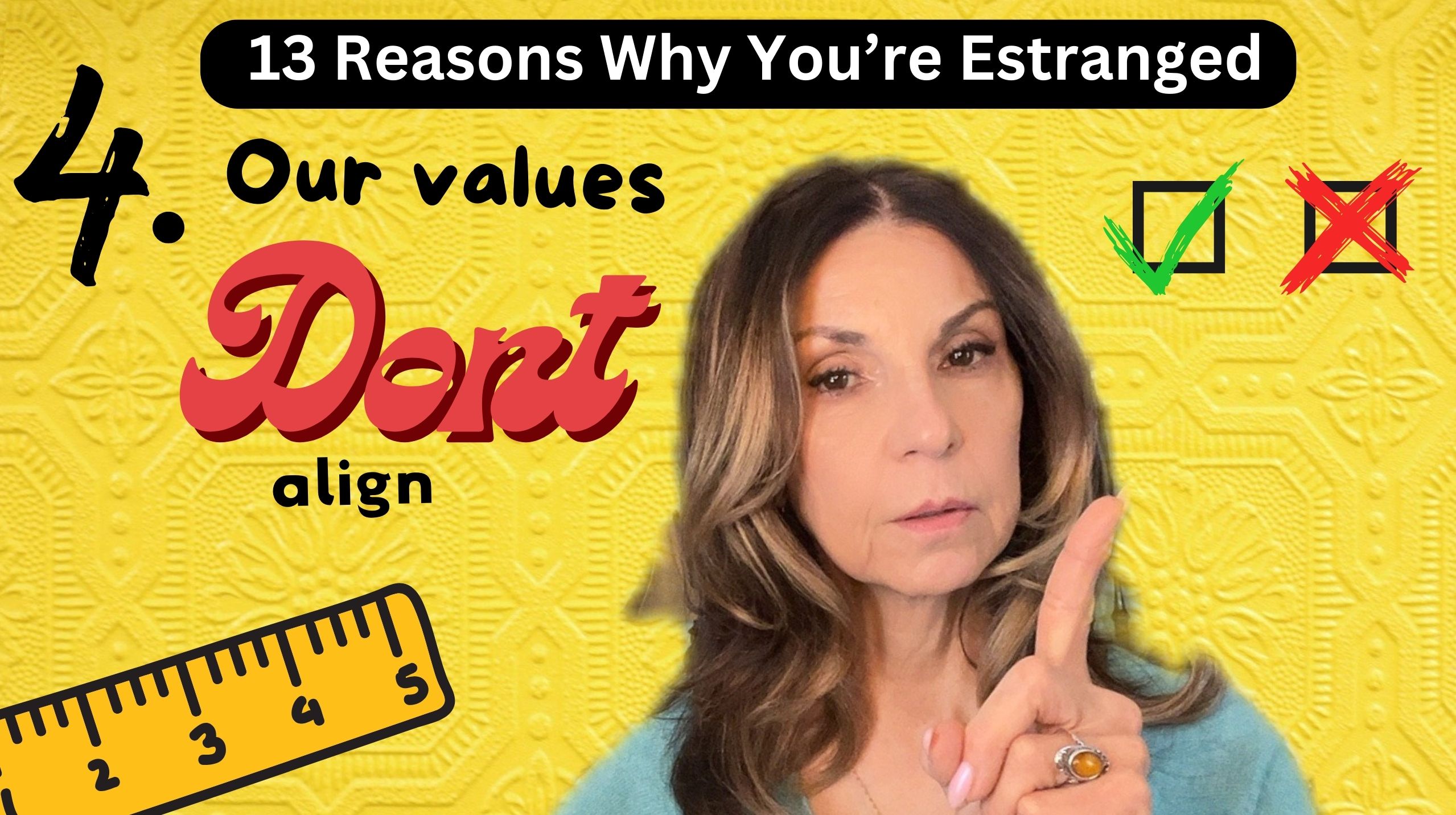Family relationships can be complex and shaped by our beliefs, values, and shared experiences. Sometimes, these elements harmonize, strengthening our connections with love and empathy. However, there are moments when differences arise, values don’t align creating tensions that strain our bonds further. In our journey through the 13 reasons families become estranged, we now focus on the fourth reason: conflicting values.
Values serve as the moral compass guiding our decisions and actions. They encompass our beliefs about honesty, kindness, autonomy, and more. Yet when these values diverge within families, conflicts can arise, leading to estrangement. Let’s explore some common scenarios where differing values sow seeds of discord.
Religion and Politics:
Religion and politics are among the most contentious arenas for familial discord. Stark differences in religious beliefs or political ideologies can ignite heated arguments and hurt feelings. These disagreements can strain relationships to the breaking point, whether it’s clashing doctrines or opposing views on social policies.
Gender and Sexual Preferences:
Family members may find themselves at odds over life decisions related to gender identity, sexual orientation, or societal expectations. Parents may have specific aspirations for their children, whether career choices, marriage partners, or adherence to traditional gender roles. Tensions mount when these desires clash with individual autonomy and self-expression, threatening familial bonds.
Cultural Backgrounds:
Families comprising members from diverse cultural backgrounds may encounter challenges in understanding and appreciating each other’s customs and traditions. Misinterpretations and misunderstandings can fuel disagreements, eroding the foundation of trust and connection.
Money and Personal Values:
Financial disagreements, ranging from spending habits to savings priorities, are commonplace within families. Moreover, conflicts can arise when individuals prioritize different values, such as honesty, kindness, or independence. Misaligned values can lead to clashes over fundamental aspects of life, exacerbating existing tensions.
Enmeshment and Autonomy:
If one person wants more independence and another wants everyone to be really close, they might argue about what’s important. This difference in how they see relationships can cause big fights and even make family members stop talking to each other. Stay tuned to learn more about enmeshment and family members feeling too close in blog/video 5 of the series 13 reasons why families estranged
Understanding the Impact:
The research underscores the profound impact of value discrepancies on familial relationships. Studies reveal that conflicting values, particularly religion, politics, and lifestyle choices, significantly predict estrangement. This disconnect extends beyond families, permeating friendships, work relationships, and romantic partnerships.
Finding Common Ground:
Despite the challenges posed by differing values, reconciliation is possible. Families can bridge the gap and strengthen their bonds by fostering empathy, open communication, and mutual respect. It’s about acknowledging and honoring each other’s perspectives while seeking compromises that honor shared values and individual autonomy.
As we navigate the complexities of familial relationships, let’s remember that understanding and respect pave the path to reconciliation. We can transcend our differences and forge deeper connections rooted in compassion and understanding by embracing empathy and dialogue.
Thank you for joining me for part 4 of the 13-part series. Be sure to check out the first 3 parts, subscribe and stay tuned for more insights into family dynamics. Remember, you’re not alone, and support is always available.









